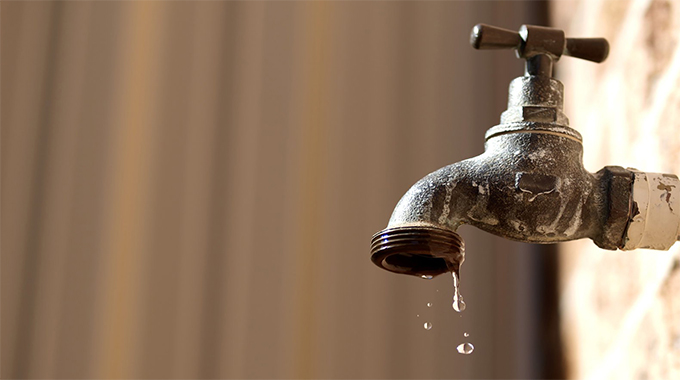
The Sunday News

Vusumuzi Dube, Senior Municipal Reporter
WITH the Bulawayo City Council set to start easing the water shedding regime from tomorrow, experts have called on the local authority and the Zimbabwe National Water Authority to review their approach to the water situation in the city.
The city has since last year been going through one of its worst water crisis in recent years with some suburbs having last had running water in March last year. The city had to introduce a stringent water shedding schedule which graduated from 144 hours a week to the local authority coming up with a Provisional Water Supply Restoration Schedule, where residents got supplies as and when available, resulting in some residents going for weeks or months without water.
Despite the persistent rains experienced in the country for the past two months the city’s supply dams remain just above 50 percent full, which is in sharp contrast to the situation at other dams countrywide, where the Zimbabwe National Water Authority reports that more than half of the country’s major dams are now full and spilling.
Sunday News spoke to a water resources expert Dr Lerato Nare, who is with the National University of Science and Technology’s Institute of Development Studies, who said it was highly likely that the city’s dams will not fill up owing to a number challenges, chief being gold panners who had dug dip holes along the rivers leading towards the dams.
He said with the water filling up the holes created by gold panners this left minimal water flowing into the supply dams.
“The problem of gold panners is one which we have all ignored not realising its overall impact it has not only on the environment but the water situation in Bulawayo. Remember those dams start off as rivers, and it is in these rivers that we have an influx of illegal gold panners who dig holes along these rivers.
Therefore, when it rains instead of the runoff being direct to the dams, the water has to instead fill these holes, which therefore has a negative impact on the water supply situation in the city,” said Dr Nare.
The water resources expert also revealed that there were a number of illegal dams that were built along the rivers which were also diverting the water which was meant to be channelled to the supply dams.
“These illegal dams were established as far back as the colonial days where farmers would divert these rivers to flow to their illegal dams to help sustain their farms, however what they would do, during the rain season they would close off their illegal dams and ensure that the main dam fills up first, it was more of an unwritten agreement.
“However, nowadays farmers are no longer closing off their illegal dams so water that is meant for the main supply dams is instead diverted to these illegal dams.
Therefore, I believe Zinwa should be putting in place mechanisms to monitor and shut off these illegal dams because honestly it is now affecting the water supply situation in Bulawayo,” said Dr Nare.
A former council engineer who was instrumental in the successful management of the city’s rationing regime at the height of the 2008 cholera outbreak said another key worry that was affecting the city’s water supply situation was the obsolete equipment which resulted in the local authority failing to treat the optimum water quantities from the dams.
He said there was a danger that even with maximum inflows to the dams, residents would continue facing water challenges owing to a culture by the local authority of awarding tenders to briefcase companies that were doing substandard work at the pumping stations.
“In the case of Criterion Water Works the contractor using ordinary contract labourers who have no expertise or training in water engineering merely stripped and painted dosing pumps, filter nozzles and returned them back in the same malfunctional condition that they were in claiming full payment for this, yet the plant to this date is failing to treat the optimum water quantities from the dams.
“Further the impact of substandard work by briefcase companies has not been felt or noticed owing to the fact that due to the unavailability of water and inflows in the dams the entire water supply system has not been subjected to operating at full design capacity but now with the good rain season and improving inflows this has exposed substandard work and faulty equipment that was installed by supposedly competent contractors,” said the engineer who declined to be named for professional reasons.



